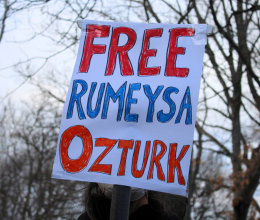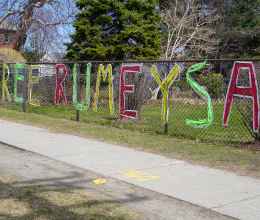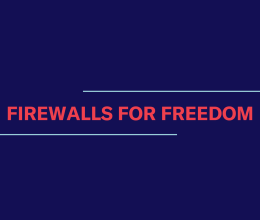
Government officials increasingly use social media to communicate with their constituents and the public. As a result, many people are asking about the constitutionality of government officials censoring members of the public on social media.
Does the First Amendment restrict the government from blocking or censoring members of the public on the government’s social media pages?
The First Amendment applies to government social media pages, such as pages run by your local police department, school committee, or city hall.
See below to learn more about what types of speech the government can and cannot restrict on government social media pages.
Does the First Amendment restrict government officials from blocking or censoring members of the public on their own social media pages?
Short answer: Sometimes.
The First Amendment applies to government officials’ social media activity only on sites where the officials are actually exercising government authority. The mere fact that a government official is using a social media site does not mean it is being used for government business or that the First Amendment applies.
The U.S. Supreme Court recently established strict rules for deciding if a social media site used by a government official is subject to the First Amendment. The Court held that a government official’s social media activity is subject to the First Amendment only if the official “(1) possesses actual authority speak on the [government’s] behalf, and (2) purported to exercise that authority when [they] spoke on social media.” The new test may make it harder to apply the First Amendment to a site that is used for both personal and government discussions.
When does a government official have actual authority to speak on the government’s behalf?
A government official’s social media activity will be found to be an exercise of government business only if the official is authorized to speak on the topic at issue by law, custom, or otherwise, and is exercising that authority in the specific instance. This determination involves looking at the official’s job description and the customs and practices of the position.
The “official” appearance of a government official’s social media account, alone, is not enough to establish that an official is conducting government business on that account. However, if a page is passed down to whomever occupies a particular office—for example, a “Port Huron City Manager” Instagram account—a court may likely conclude that the account purports to speak for the government.
The Supreme Court has indicated that public officials can create a rebuttable presumption that they are not speaking for the government by putting tags like “this is my personal page” or “the views expressed are strictly my own” on a page or post. The Court has also indicated that the First Amendment is less likely to apply when a public official does not explicitly purport to be making an announcement in their official capacity and/or shares information that is available to the public through other means.
Does blocking or censoring comments always violate the First Amendment on a site used for official government business?
Short answer: No.
The government can censor comments that are not protected by the First Amendment, including comments that make a true threat of violence, incite others to imminently violate the law, or contain obscene language as defined by the U.S. Supreme Court.
If the government creates a social media page, post, or thread dedicated to a specific topic, then it is likely permissible to restrict comments on that page, post, or thread to discussion of that topic. For instance, if the government creates a post about trash collection, it may remove reply comments about local schools. But, if comments on a government site that praise the government or official on a particular subject are allowed, comments criticizing the official or agency on that same topic cannot be removed.
Does the First Amendment prevent public officials from “blocking” members of the public from their private social media?
Short answer: No.
People don’t lose their free speech rights just by virtue of gaining public office. If public officials are using social media as private persons, the First Amendment protects their right to limit their audience and curate the messages on the page, just like any other private person. Re-election campaign accounts may be either personal or for government business, depending on how the official uses them.
What can I do if I believe I have wrongly been censored by the government or a government official who has the authority to speak on the government’s behalf on social media?
Step 1: Collect any information that shows the social media account is used for government business and proves that you were blocked, including screen shots.
Step 2: Contact the office of the elected leader or government agency and politely request that you be unblocked. You can include references to this flyer and/or the information collected in Step 1.
Step 3: Contact the Civil Rights Division of the Massachusetts Attorney General’s office to file a complaint and/or get advice.


